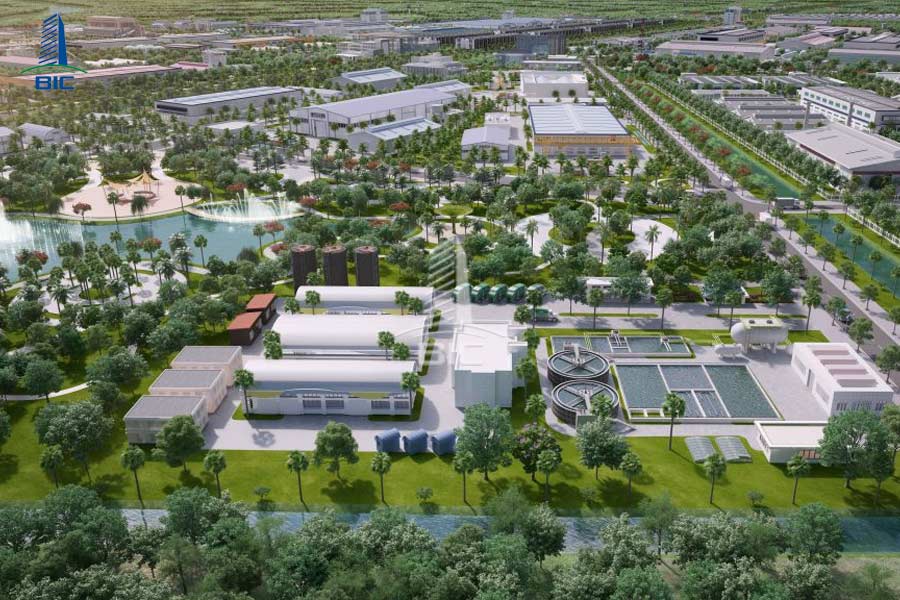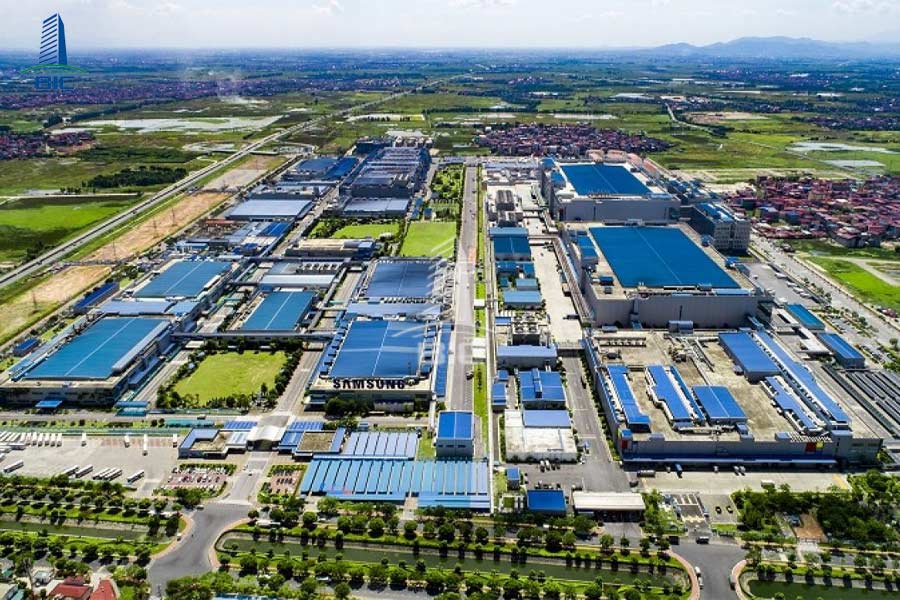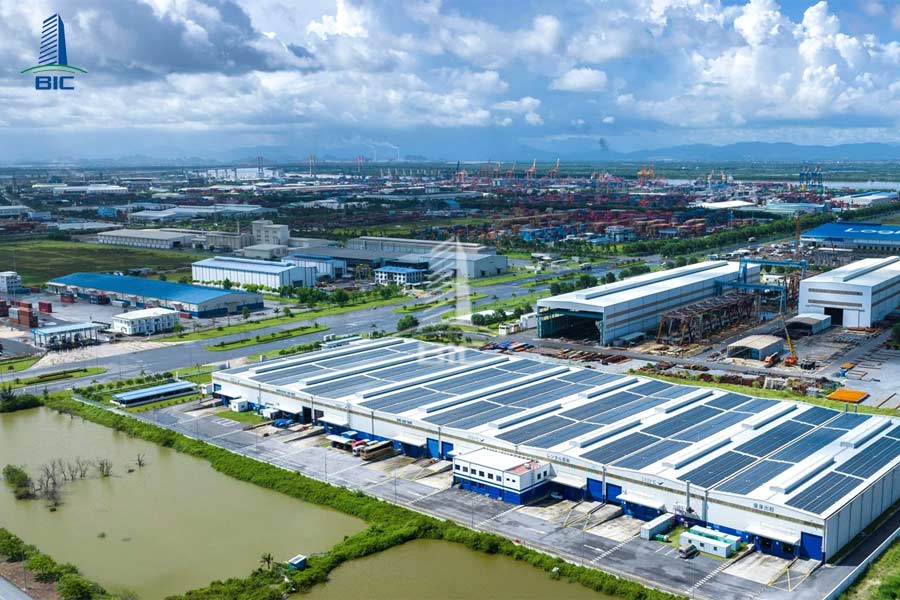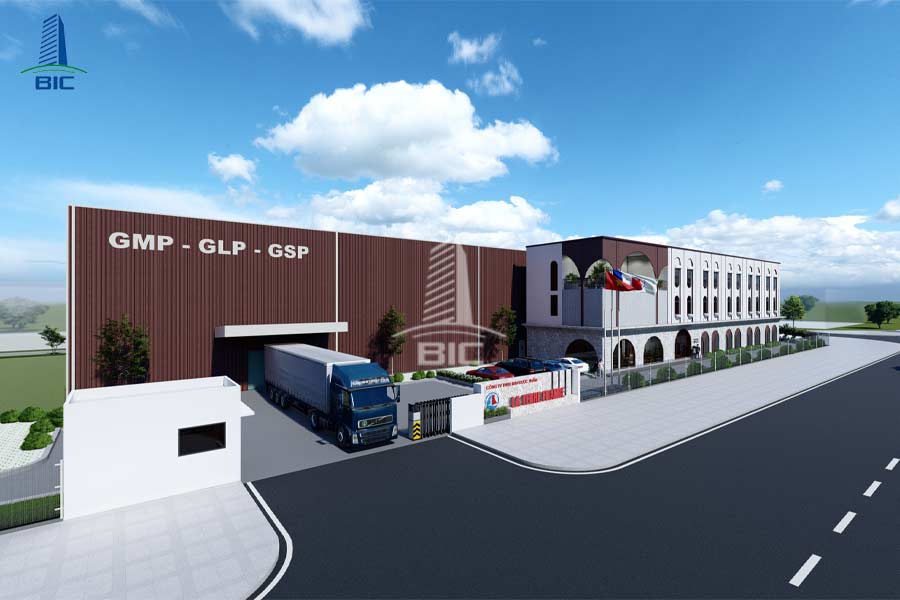
Master planning from the outset plays a pivotal role in factory design, helping businesses optimize land use, ensure efficient operations, and reduce long-term costs. More than just arranging factory buildings, a master plan involves the strategic layout of functional zones such as warehouses, offices, technical areas, internal traffic routes, and landscaping. All of these elements must be carefully considered according to the industry and production scale. The article below will help you better understand the consulting process and key principles in factory design within industrial parks.
Factory master planning is the process of scientifically arranging all construction components on a given plot of land to ensure logical connectivity between functional areas such as production workshops, warehouses, administrative offices, technical zones, internal traffic, and landscaped areas. This is the first and most critical step in the site planning process, directly impacting operational efficiency and future scalability.
Unlike focusing solely on individual factory buildings, factory master planning is a long-term strategic approach. It requires comprehensive consideration of material flow, personnel movement, access for transport vehicles, environmental concerns, and legal compliance. This strategic difference helps investors avoid unnecessary costs caused by fragmented and inconsistent design.
The core objective of factory master planning is to optimize land use, streamline production flows, control investment costs, and enable flexible expansion at each development phase. A well-structured master plan not only enhances operational efficiency but also lays the foundation for sustainable development while complying with technical standards within the industrial park.

Seeking master planning consultation at the early stage helps businesses save costs and minimize errors during construction and later operations. Many factories face costly redesigns or retrofits after becoming operational due to the lack of a comprehensive master plan from the start.
A well-designed site layout clearly defines the function of each zone, optimizes the placement of buildings, and logically guides the flow of materials and personnel. This improves production efficiency, ensures workplace safety, reduces internal traffic conflicts, and meets fire safety, environmental, and legal requirements in the industrial park.
Early consultation also helps investors anticipate future expansion possibilities, allowing for rational land use and infrastructure planning avoiding demolition or costly relocation when scaling up operations. Master planning from the beginning is a strategic move to optimize both investment and long-term operational costs.

To ensure effective investment and long-term operation, factory master planning must follow a methodical consulting process based on clear technical foundations. Below are the key steps typically applied in master planning for factories within industrial parks:
Assess the terrain, existing technical infrastructure, industrial park planning orientation, natural conditions (sunlight, wind, drainage), and legal factors related to construction zoning.
Gather information about the industry, production capacity, technology lines, material and product characteristics to propose suitable functional layouts that match actual operations.
Arrange primary zones such as production workshops, warehouses, administrative offices, technical areas, fire protection systems, internal traffic, greenery, and parking ensuring logical flow, technical compliance, and industrial park standards.
Design optimal routes for personnel, transport vehicles, and goods movement to avoid dangerous intersections and enhance overall efficiency within the factory.
Allocate spaces for future expansion to ensure flexible growth without disrupting the original layout.
Provide a complete documentation set including site layout plans, 3D visualizations, and technical documents for construction permits, fire safety assessments, environmental impact evaluations, and construction execution.

A master plan is not merely an arrangement of structures, it forms the operational backbone of the factory and sets the stage for safe, efficient, and sustainable development. The following core principles should be observed:
All structures must meet current regulations on building setbacks, construction density, building height, water supply and drainage, wastewater treatment, and environmental and safety requirements.
The flow of raw materials, semi-finished, and finished products must be streamlined to minimize intersection with personnel or internal traffic. The goal is to shorten travel time, reduce operating costs, and improve productivity.
The layout must strictly follow fire protection regulations, ensuring safe distances between buildings, emergency exits, fire stations, water tanks, and fire-fighting equipment in accordance with national standards.
Areas such as production workshops, warehouses, offices, technical zones, canteens, and parking lots should be arranged separately to prevent negative impacts from noise, dust, vibration, or fire hazards.
The layout should achieve a balance between maximizing utility, rational construction and operating costs, and avoiding unnecessary space or duplicated functions.
A critical factor in a successful master plan is allocating space and infrastructure to accommodate future production growth, particularly for businesses planning multi-phase development.

Choosing a professional consulting firm is key to ensuring an efficient, legally compliant, and cost-effective factory design process starting from the master plan. A reputable firm not only provides a compliant site plan but also supports the client throughout the process from site surveys and legal documentation to technical design and turnkey construction.
With experience in hundreds of factory planning and design projects across major industrial parks nationwide, we are confident in delivering comprehensive solutions tailored to various industries ranging from food and mechanical to plastics, logistics, pharmaceuticals, and high-tech.
BIC's Commitment:
- Optimize investment costs through logical layout planning, efficient land use, and infrastructure design.
- Ensure legal compliance for construction permits, fire safety, and environmental regulations.
- Provide full-package factory design in industrial parks with easy expansion options that do not compromise the overall structure.
A professionally executed master plan not only optimizes operational functionality and reduces investment costs but also provides a strong foundation for the long-term, sustainable growth of your business in the industrial park. From site surveys and needs assessment to layout planning and technical drawings every step requires consultation from a firm with practical experience and a solid understanding of technical and legal standards.
If you're planning to build a factory or expand your production capacity, don't overlook the importance of master planning consultation. Contact BIC today for a free preliminary consultation tailored to your land size and industry.